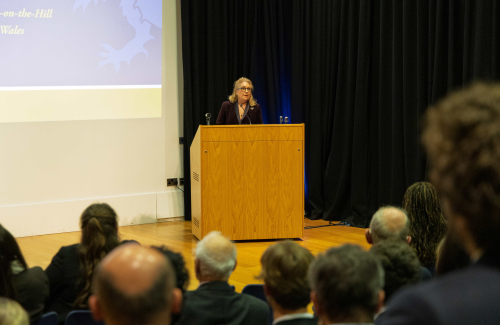More Pembroke news
Blackstone Law Lecture Overview - Keir Starmer
NEWS |
The annual Blackstone Lecture took place on the 21st November 2015, given by Sir Keir Starmer MP, KCB, QC. The lecture was entitled ‘Human Rights: can Britain go it alone; and should we?’
Sir Keir began the lecture with a poignant reflection on the recent Paris attacks, before turning to the history of our commitment to international human rights. He focused on the end of the second world war, at which point Britain ‘reasserted our values’, describing this as a defining moment for human rights as the international community vowed never again to allow such atrocities to be committed. He argued that we must not forget the values to which we committed in light of those atrocities, values now under attack by Islamic State, and that we must continue fighting for the values outlined in the ECHR, which are entrenched in domestic law by the Human Rights Act.
Sir Keir focused on three key arguments put forward in favour of repealing the Human Rights Act, considering and challenging each of them in turn.
The first to be challenged was the suggestion that the Act is ‘nothing more than a villain’s charter’, strengthening and benefiting the position of defendants. He considered the position of defendants in light of the Human Rights Act, noting that most challenges brought by defendants have failed, with the few that succeed usually being justified, concluding that the Human Rights Act has changed very little for the position of defendants. On the contrary, he argued, it is victims who reap the benefits of the Human Rights Act as it entrenches positive obligations (and therefore victim rights) in our law, emphasising that before the Human Rights Act victims did not have a right to effective investigation into serious allegations of criminal wrongdoing. Sir Keir also cited his work with the Northern Irish police force preparing their officers to handle controversial marches, in which the Human Rights Act was received very positively as it increased certainty for police officers by providing clear concepts of proportionality, necessity, and legality for officers to weight their actions against. Sir Keir persuasively concluded that the Human Rights Act is about as far from a ‘villain’s charter’ as one can get.
Sir Keir then moved to the second major criticism of the Human Rights Act - the argument that the Act prevents the government from deporting high threat or otherwise undesirable foreigners when those foreigners would be in danger of torture or execution if they were to be removed. Sir Keir argued that this criticism ignores the UK’s existing obligations as the UK has ratified the Convention on the Rights of the Child and the Convention Against Torture. He argued that our government could only deport foreigners at risk of torture or execution if it renounced these obligations in addition to a repeal of the Human Rights Act. Sir Keir suggested that to move away from the Human Rights Act would mean moving away from the work of the previous governments which ratified many of these rights in UN commitments, a move which he convincingly argued is undesirable.
The third argument Sir Keir challenged was that the UK courts are shackled by Strasbourg. He emphasised that the decisions of the European Court of Human Rights are not, and have never been, binding on our domestic courts, and we remain ‘unfettered’ by ECtHR decisions. Sir Keir argued that the Human Rights Act actually allows the UK courts to contribute to international human rights by influencing many of the judgements of the ECtHR, and reminded the audience that UK courts lose less than 0.5% of cases against it in Strasbourg. The claim that we would be restoring the sovereignty of our courts by scrapping the Human Rights Act is, Sir Keir argued, ‘both misleading and mischievous’.
In his concluding remarks, Sir Keir reflected that the tragic events in Paris are a harrowing reminder that our values are under attack, and we must meet that attack with our values secure. Our freedoms have been hard-won, and as we pull together in solidarity with Paris, now is not the time to repeal the Human Rights Act. Now, Sir Keir concluded, is the time to stand up for our human rights commitments and think about what more we can do to protect human rights.
Article by Charlotte Herbert (Blackstone President 2015-16)
Photographs by Evie Tarr

